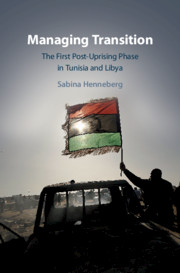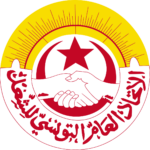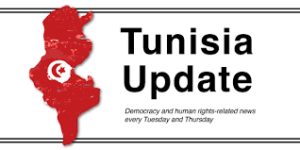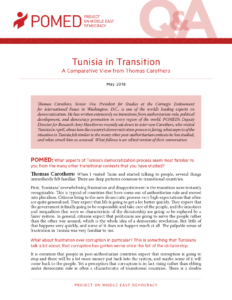 As democratic norms erode in Tunisia, a bipartisan group of US lawmakers wants to ensure proposed aid cuts don’t undermine the very civil society actors seeking to reverse the North African country’s democratic backslide, according to a letter obtained by Al-Monitor.
As democratic norms erode in Tunisia, a bipartisan group of US lawmakers wants to ensure proposed aid cuts don’t undermine the very civil society actors seeking to reverse the North African country’s democratic backslide, according to a letter obtained by Al-Monitor.
Credible, unreleased public opinion polls indicate that Tunisians have not given up on democracy, according to Sabina Henneberg, Soref Fellow at The Washington Institute for Near East Policy and the author of Managing Transition: The First Post-Uprising Phase in Tunisia and Libya.
To overcome its reputation for putting security and economic interests ahead of democratic ideals, the US has an opportunity in Tunisia to stand up for democracy and human rights. This can be done by enhancing its use of indirect, less visible foreign policy tools to influence President Kais Saied, she writes for the Arab Reform Initiative.
- For example, as US officials have noted, working with regional organizations such as the African Union to verbally pressure Saied would make it harder for him to accuse his foreign interlocutors of Western impositions. ….
- Another strategy (which is likely already in use) is to shift away from policy tools that signal disapproval of Saied’s autocratization to tools that allow for under-the-radar support for US goals, such as third-country training for Tunisian democracy advocates and dialogues between Islamists and secularists. This includes augmenting the use of global assistance programs that fund political party trainings, independent journalism, judicial reform, and civil society associations, and offer ways to foster a new, more competent and committed political class in Tunisia.
 Efforts to ensure that existing programs are accompanied by public messaging programs that help dispel mistrust of American aid, for example by organizing conferences with officials, activists, and the public to discuss how security assistance is conforming to international human rights standards, will also be invaluable.
Efforts to ensure that existing programs are accompanied by public messaging programs that help dispel mistrust of American aid, for example by organizing conferences with officials, activists, and the public to discuss how security assistance is conforming to international human rights standards, will also be invaluable.- Moreover, Washington should and will likely continue, to the extent possible, contributing to a “social safety net” for the most vulnerable Tunisians, such as the purchase in April 2023 of 25,000 metric tons of wheat for the country. RTWT
‘Cocktail of failures’
 Saied also restored Ben Ali’s old legacy in the security apparatus, reversing post-revolution reforms aimed at curbing police brutality. This is how he prepared the ground for the current crackdown against dissidents, adds Soumaya Ghannoushi, a researcher in the history of ideas at the School of Oriental and African Studies. The targets include not only political leaders of all tendencies, but civil society activists, journalists, solicitors, even people simply writing critical Facebook posts.
Saied also restored Ben Ali’s old legacy in the security apparatus, reversing post-revolution reforms aimed at curbing police brutality. This is how he prepared the ground for the current crackdown against dissidents, adds Soumaya Ghannoushi, a researcher in the history of ideas at the School of Oriental and African Studies. The targets include not only political leaders of all tendencies, but civil society activists, journalists, solicitors, even people simply writing critical Facebook posts.
Tunisia has turned from a fragile democracy into a country resembling a full-fledged dictatorship, she writes for The Guardian. It is a cocktail of failures, robbed of its hard-won freedoms, and thrust into a deep economic crisis.

Credit: POMED
“The crackdown is both shocking and, for those who have followed President Saïed’s rhetoric and actions over the past year and a half, entirely expected,” said Zachary White, editorial associate at the advocacy group Project on Middle East Democracy (POMED), a partner of the National Endowment for Democracy (NED). “The arrests and charges are similar to others we have seen since Saïed’s coup, but on a new and alarmingly large scale,” White told FairPlanet.
The Carnegie Middle East program hosts a discussion (below) to mark the release of a newly edited volume titled, “Geopolitics and Governance in North Africa: Local Challenges, Global Implications.” The discussion will include keynote remarks from deputy assistant secretary of state for North Africa, Josh Harris, followed by a panel discussion moderated by Amr Hamzawy with Mohammad Daadaoui, the NED’s Fatima Hadji, Frederic Wehrey, and Sarah Yerkes.
Are we confronting the end of Tunisia’s democratic transition?

POMED
The country’s once promising transition seems to have lapsed into authoritarian restoration as rule of law institutions are eroded while cybercrime and counterterrorism laws are wielded against regime critics and journalists, Reni Zhelyazkova writes for Chatham House.
Echoing other authoritarian leaders, Tunisia’s president invokes a populist discourse built around a struggle between ‘the people’ and internal and external enemies, from political elites and unions to migrants and international financial institutions. Where is Tunisia heading, amidst this multitude of crises? Can this dangerous slide to authoritarianism be halted and democracy restored? Chatham House asks.
15 JUNE 2023 — 1:30PM TO 2:45PM. The event will be held on the record and livestreamed on the MENA Programme’s Facebook page.







